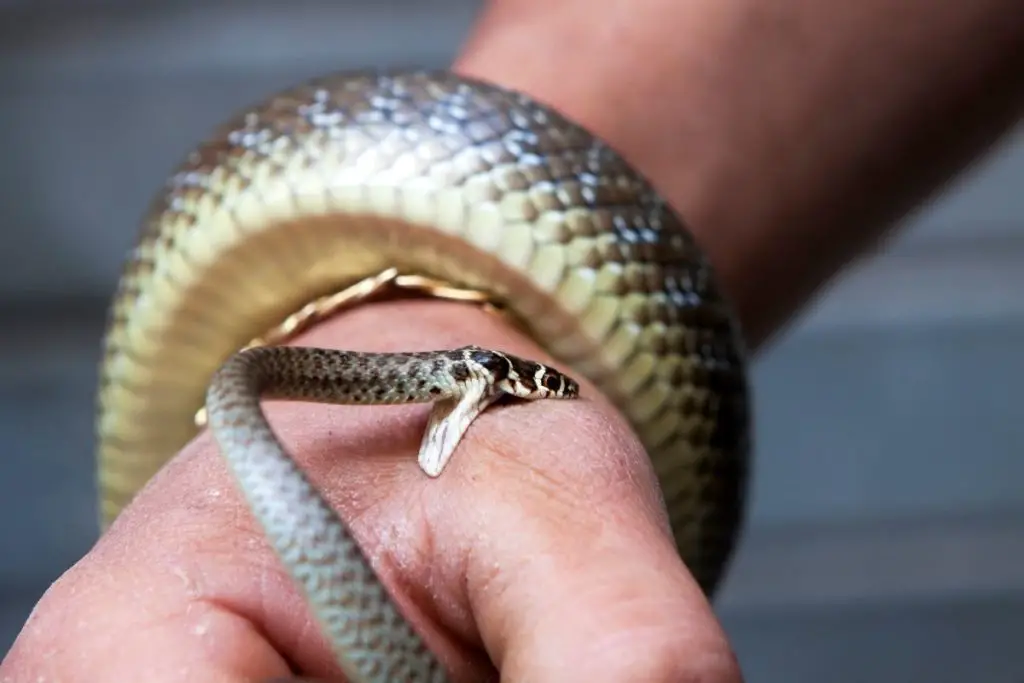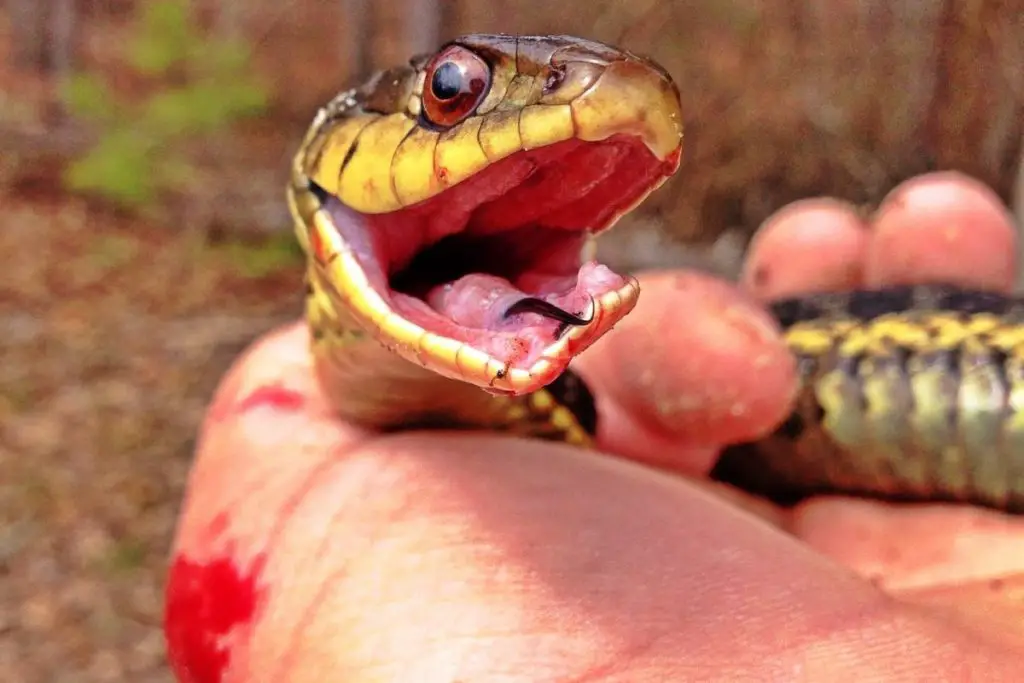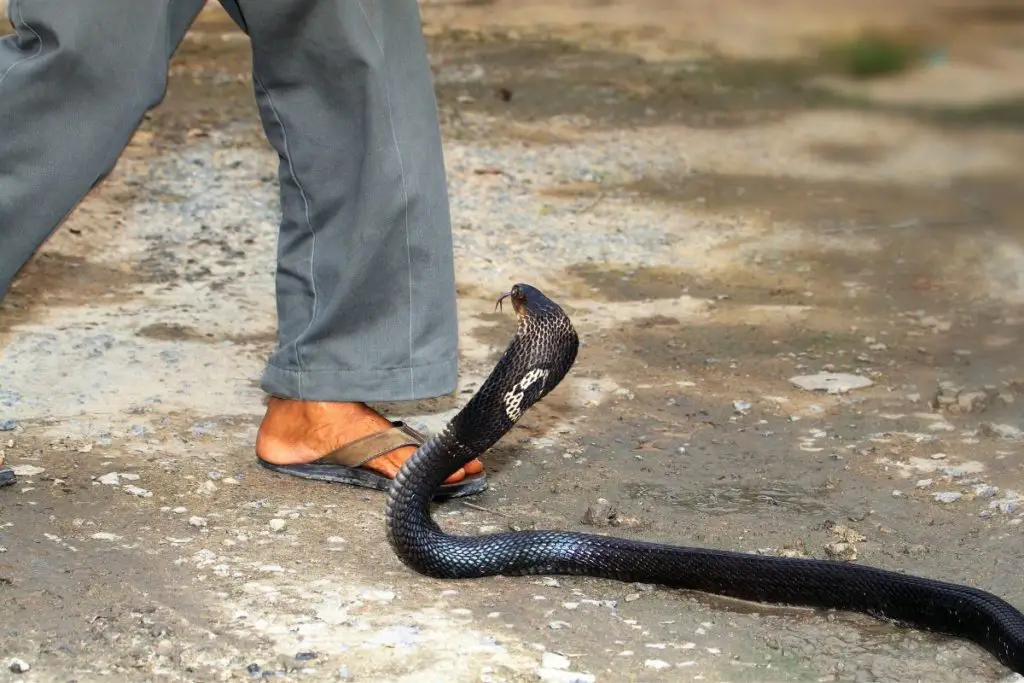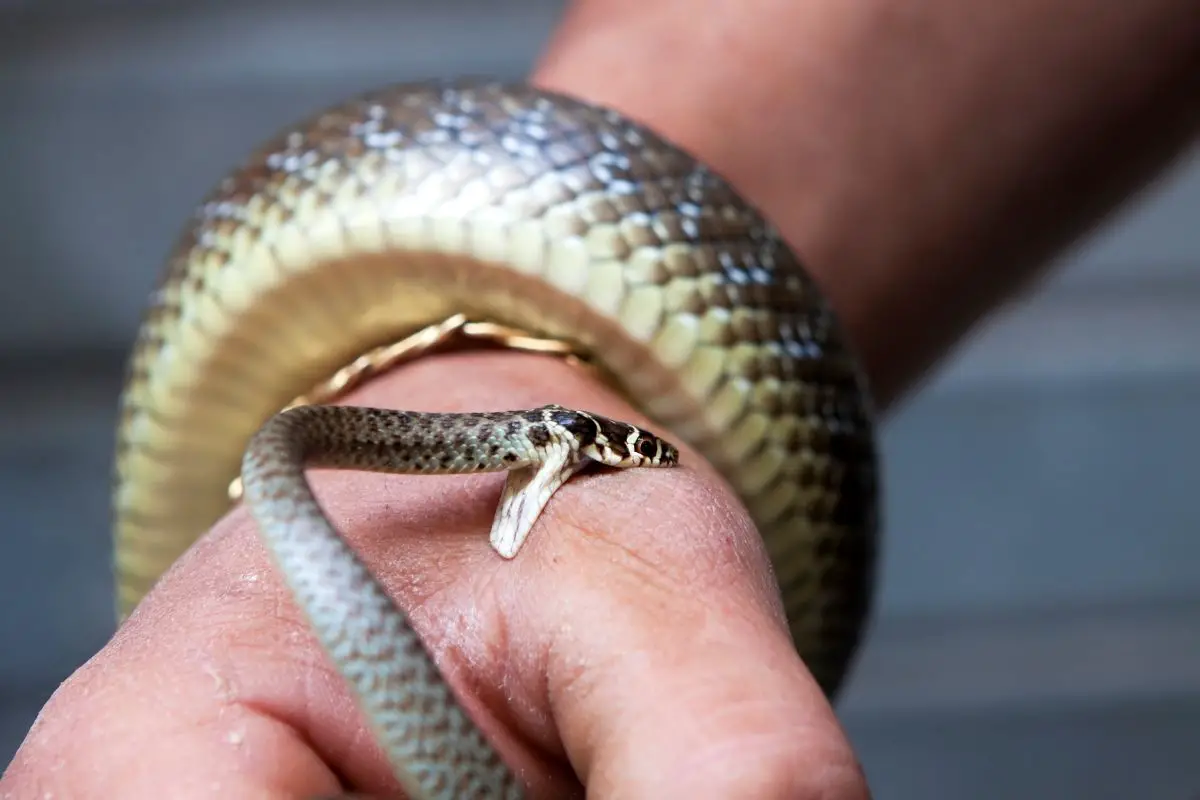Many people that are looking to get a pet are now looking for snakes, and it’s easy to see why. Snakes don’t need to take walks, they don’t require a large space, and they are generally low-maintenance pets.
There are even many snake species that will cost you less than the fees of adopting a dog or a cat, which is kind of amazing if you ask me.
However, many people will think twice before they get a snake because they fear their bites and they will start looking for ones that don’t bite, but do these even exist? After asking many experts, snake owners, and vets, I’ve found the honest answer;
So, are there snakes that don’t bite? All Snakes bite and there are no snakes that don’t bite at all because biting is the main defense mechanism for most snakes, however, there are many snakes that are less likely to bite their owners and many of them are small, non-venomous snakes that even if they do bite, it’s not going to harm you.
This answer may come as disappointing to many people, but it really shouldn’t. All animals have defense mechanisms, some are aggressive mechanisms like dog bites, and others are less so like your turtle hiding, however, almost any pet, even snakes, can trust you with time, which means they are probably not going to bite you.
In this article, we are going to look at why snakes bite, what you should do to not get bitten, and what to do in case you really do get bitten, so make sure to keep reading.
Contents
Why Do Snakes Bite?

It’s possible that your snake bit you due to panic, hunger, or annoyance. Some snakes will become defensive and strike or feign attacks when frightened.
A snake may strike at objects it believes are food when hungry, which will almost certainly include your hands, especially if they smell like prey.
A snake may also become irritated with you and notify you to stop in the only manner it understands.
It’s possible that you’ve mistreated your snake in the past, and it will remember. A snake will link your scent/odour with danger.
Venomous snakes have a slow strike time. As a result, you should never keep a rattlesnake or any other snake with venom glands as a pet. If you are looking into getting a pet snake, I recommend you choose from these beginner-friendly pet snakes that will stay small.
Do All Snakes Bite?
The fact of the matter is that all snakes bite, but some snakes bite less than others.
Some snakes are friendly and will get used to their owners more quickly than others, which means their owners are going to be able to confidently pick them up and handle them safely knowing that the snake is probably not going to bite them.
You can learn about these pet snakes that are unlikely to bite here.
Do Snakes bites hurt?

Bites from snakes may result in discomfort and swelling around the site of the bite.
Venomous snakes can cause fevers, headaches, seizures, and numbness as well. These symptoms, on the other hand, could also be caused by the intense fear caused by the attack.
How badly will the snake’s bite hurt really depends on the species of the snake. For example, a bite from a Garter snake is going to hurt a lot less than that of a rattlesnake.
How to not get bitten by your snake
Although there really is not anything you can do that will guarantee you never get bitten by your snake, there are many things you can do to minimize the risk of this happening as much as possible.
Here are some safety tips for handling your snake to avoid getting bitten:
- Pick up a friendly snake species, and take the time to learn its behavior and get it acquainted with you and your house.
- Don’t pick up a snake that isn’t willing to be handled. Picking up a snake against its will will make it dislike you and possibly bite you.
- When picking up the snake, be quiet and confident and make sure the snake can see all of you.
- If the snake shakes, acts nervously, shakes, or tries to move away, stop and don’t keep trying to catch the snake.
- If you’re going to hold a constrictor, they should coil around your fingers, but if they coil too tightly, you should unwrap them from their tailend.
- Wash your hands thoroughly every time you handle prey, your snake will bite your fingers off if it smells like mice.
- Don’t handle the snake after it has eaten.
- Don’t handle the snake during the shedding process
- Never grab a snake from the tail
- Avoid sudden movements or loud noises around snakes
- Do not try to pick up a snake that is coiled up as they may feel threatened and bite
- Be aware of your surroundings, if there are other people or pets around who might be scared of the snake, it’s best to take the snake to a secluded area where it will not be scared or startled. Snakes are very sensitive animals and can sense your energy, so if you’re nervous around them they might feel threatened even without seeing you as well!
- When transporting snakes in containers, make sure that their container is secure enough that they won’t escape. Snakes can be very resourceful when it comes to escape and end up biting someone.
- Always have a first aid kit on hand in case of snakebite.
Okay, now let’s see what you should do in case the worst does happen and you end up getting bitten by the snake.
What to do if a snake bites you (or someone else)

CLEAN, DISINFECT, THEN SEEK EMERGENCY MEDICAL CARE
If a snake bites you or bites someone else, you should immediately clean the wound with warm water, disinfect the wound with an antiseptic cleanser, then go to an emergency room right away.
If you have even a slight suspicion that the snake may have been venomous, call 911 or head to the ER immediately and let them handle it.
Conclusion
There are no snakes that will never bite, and anyone that tells you that is either lying to you or doesn’t really know what they’re talking about. However, how likely you are gonna get bitten will depend on the species of snake, so for the most part, yes, there are some snakes out there that are less likely to bite or even completely harmless.
However, it is always important to be aware of your surroundings and take necessary precautions when handling any type of snake, just to be safe. Remember, snakes are animals just like us and they can feel fear, stress and pain, so always be respectful when handling them.
Remember that if you are bitten by a snake, it is important to seek medical attention as soon as possible to avoid any potential infection or other health complications. Always have a first-aid kit on hand when you are working with snakes just in case of an emergency.
As long as you are aware of the risks and handle snakes responsibly, there is no reason to be scared of them! They can make interesting, fascinating, and at times beautiful pets. Just remember that they are still animals and should be treated with caution and respect. Be safe!
Related Questions
Where do snakes usually bite?
Most pet snakes bites happen in the hands, feet, and ankles of humans, and for prey, most snakes will bite in the head or neck area to deliver a fatal bite.
Are Pet snake bites painful?
How painful a pet snake’s bite will depend mainly on the snake’s species. Some snake species have sharp teeth and long fangs and will hurt you quite badly with their bites while others have very small and weak teeth that are not going to even pierce your skin.
How does a snake bite feel?
Over 90% of cases experience moderate pain and redness, with this varying depending on the location. Bites from cobras and some vipers can be extremely unpleasant, causing the local tissue to become warm and tender within five minutes. This area might also ooze or blossom, resulting in tissue necrosis.
Can you be bitten by a snake and not feel it?
You can get bitten by a snake and not feel it for a while, even if you were bitten by a venomous snake as in some cases, people do not show any symptoms following the bite of a venomous snake.
However, in the vast majority of cases, you are going to feel the bite of the snake but how sharp or bad the pain is going to be will depend on the type of snake you have or that bit you.
Helpful Resources
If you like this article, please share it!

